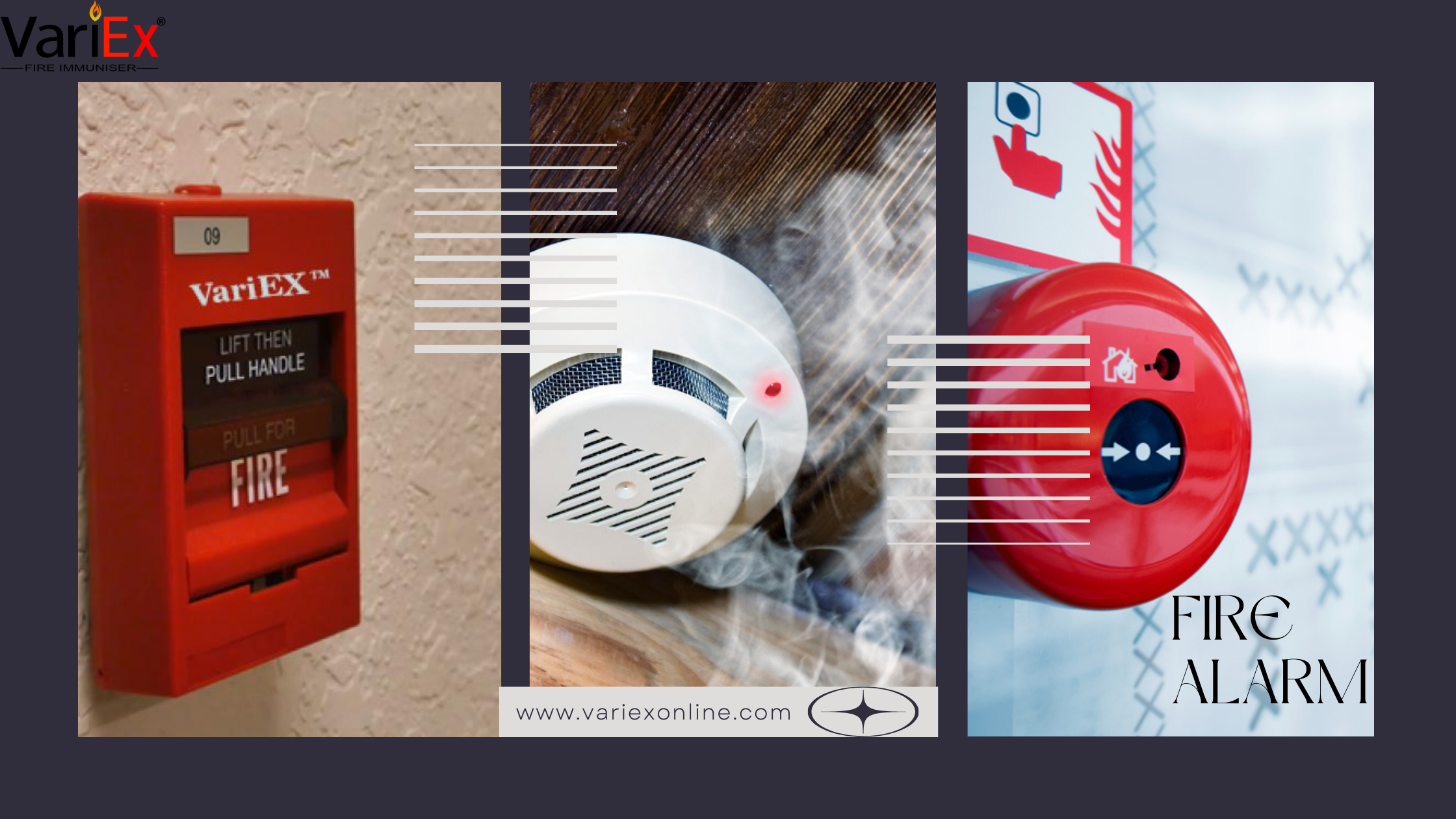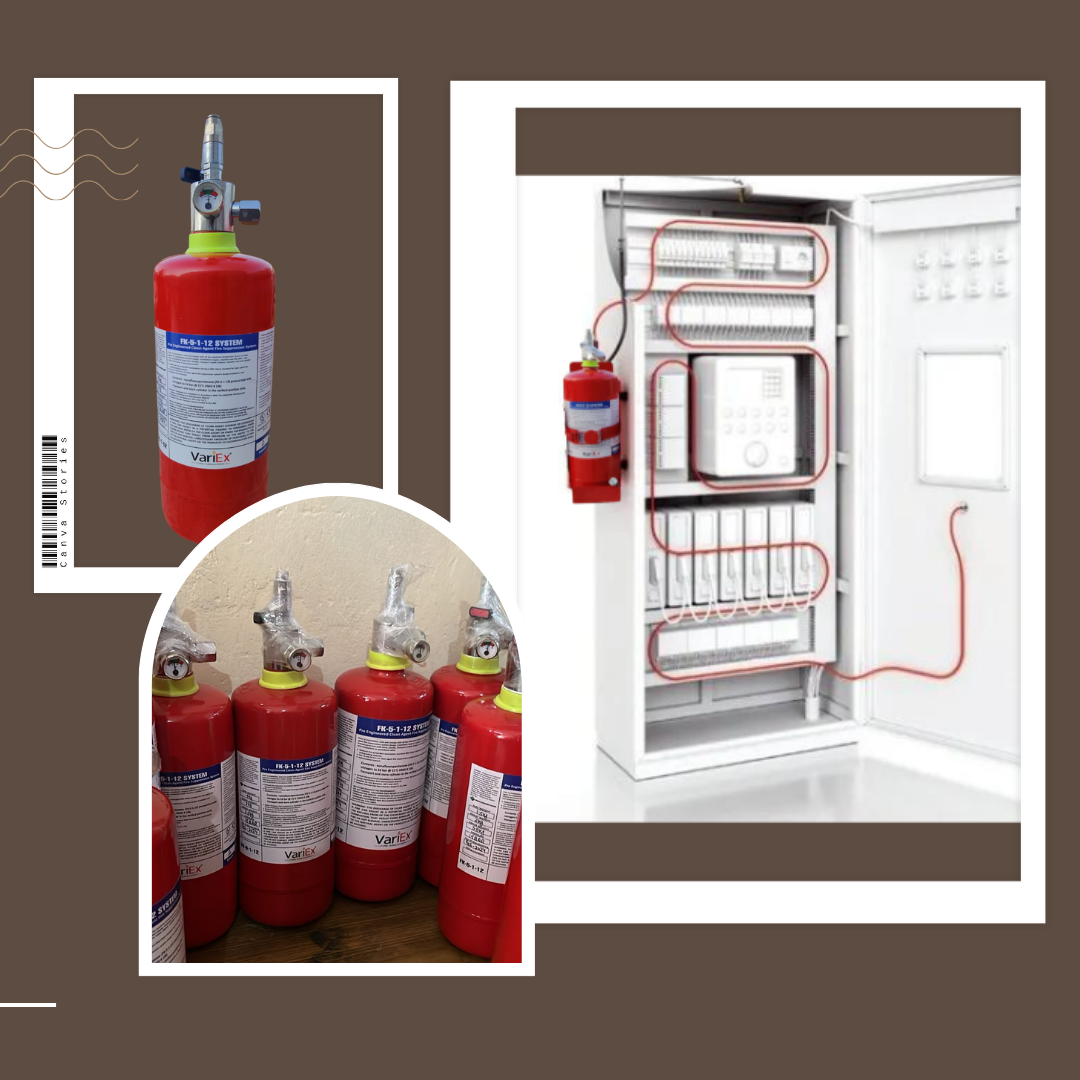![]()
Fire Immuniser
+91-7829629111
Email: info@variex.in
Varistor Technologies Pvt. Ltd.
Block-1, First Floor, Ardente Office One, Hoodi Circle, ITPL Main Road, Bengaluru, Karnataka 560048, IN
How Loud Is A Fire Alarm
How Loud Is A Fire Alarm
We encounter various sounds in our daily lives, each varying in loudness depending on the source and proximity. One sound that stands out, and rightly so, is the piercing blare of a fire alarm. Fire alarm systems are critical components of building safety, designed to alert individuals to potential fire hazards, providing crucial time to evacuate and contact emergency services. Here, we delve into how loud a fire alarm is, the standards guiding these audible levels, and the reasoning behind its intensity.
Understanding Sound and Decibels
To discuss the loudness of a fire alarm, it's essential to comprehend the concept of sound and how it's measured. Sound is a type of wave produced by vibrating objects, and it travels through mediums such as air, water or solids. The unit used to measure sound level or intensity is the decibel (dB).
Various sounds in our daily surroundings register over a broad range of decibels. A whispering conversation might be about 30 dB, regular talking around 60 dB, a vacuum cleaner about 70 dB, while a rock concert may be around 120 dB. When addressing loud noises that could potentially lead to auditory damage, it's important to note both the decibel level and the duration of exposure.
Fire Alarm Decibel Levels
Now, let's focus on how loud a fire alarm is. The mandated loudness of a fire alarm, as prescribed by safety guidelines, is typically between 75 and 85 dB for most models. But it's important to know that actual loudness levels can vary, depending on the circumstances and the specific fire alarm.
National Fire Protection Association (NFPA), a U.S. organization that sets and enforces fire protection standards, recommends that fire alarms in a typical sleeping room should produce a sound level of at least 75 dB at the pillow level. In corridors and other spaces, alarms should register at least 60 dB or 5 dB above any ambient noise level that lasts more than 60 seconds, whichever is greater. There is a specific reason for these guidelines, rooted in human psychology and physiology.
The Importance of Loud Fire Alarms
The principle behind these guidelines is to ensure the alarm is loud enough to rouse individuals from sleep or be heard over the ambient noise in a commercial or public space. To accomplish this, the alarm must be substantially louder than background sounds and be unpleasant enough to command attention.
Loud alarms can penetrate walls and doors, reaching people in different rooms or even other levels of a building. Moreover, the intensity is intended to evoke a level of discomfort, pushing individuals to take quick action to either evacuate or address the source of the alarm. In this regard, the loudness of a fire alarm becomes crucial to its function in protecting lives and property by facilitating timely evacuation and response.
Setting Fire Alarm Volumes
The question of controlling the volume of a fire alarm may arise, especially in cases where the noise may be disruptive or cause distress to certain individuals. However, setting a fire alarm's volume isn't as straightforward as adjusting the volume on a stereo. The decibel level of a fire alarm is configured during manufacture and not typically adjustable at installation.
The alarm’s high decibel level is there for good reason - to alert as many people as possible to a potential fire hazard. Toning down a fire alarm's volume could risk impairing its effectiveness, jeopardizing the safety of occupants in emergency situations.
Considerations for Special Populations
While the loudness of a fire alarm is a life-saving necessity, special consideration may be needed for individuals with hearing impairments or those for whom loud noises can cause anxiety or distress, such as individuals with autism. For these populations, there are visual fire alarm systems that utilize flashing strobe lights, or other alternative alerting methods, to convey an alarm. These are designed to alert individuals effectively without the auditory discomfort associated with the loudness of a typical alarm.
Conclusion
In conclusion, the loudness of a fire alarm is not merely an inconvenience but a critical factor in its effectiveness in saving lives and property. The rules governing these sound levels aren't arbitrary but based upon the decibel levels required to awaken sleeping individuals and penetrate the ambient noise in commercial settings. While these roaring alerts may cause momentary discomfort, they serve a crucial purpose in ensuring the safety of all occupants within a building. A fire alarm's blaring call is a slice of audible surveillance that functions as our first line of defense against potential disaster. Always remember, when you hear the piercing sound of a fire alarm, it's time to act swiftly and decisively, because every second counts.
Explore our products Range
Final Say
At VariEx.in and VariexOnline.com, we specialize in supplying and installing top-quality fire fighting systems and equipment. From fire extinguishers to advanced suppression systems, we offer comprehensive solutions tailored to your needs. Our experienced team ensures precise installation and maintenance for optimal safety.
Trust VariEx for reliable fire protection. Contact us online or call 7829629111 to learn more.
"WHAT YOU CAN READ NEXT"
 Read more +24 November 2023 in Fire Extinguisher
Read more +24 November 2023 in Fire ExtinguisherWhat types of fire extinguishers are available for different fire classes?
 Read more +18 April 2025 in Fire Suppression
Read more +18 April 2025 in Fire Suppression











